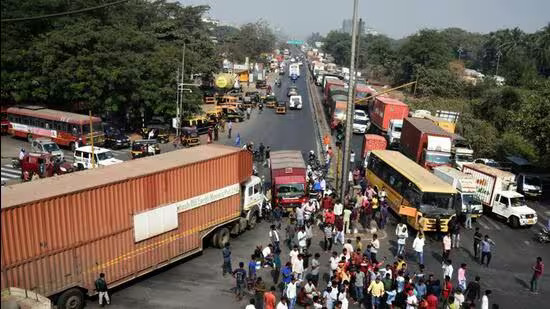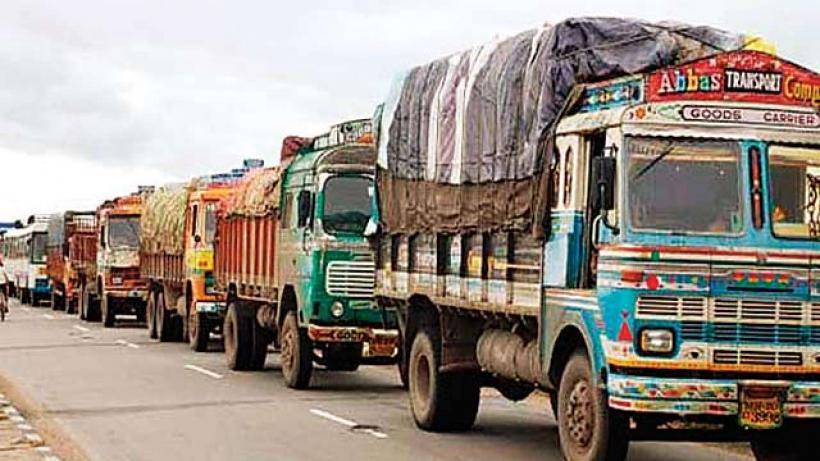In a significant turn of events, the recent amendment to colonial-era criminal laws by the Indian government has sparked widespread protests across the nation, primarily led by truckers. The strike, now in its second day as of Tuesday (Jan 2), has seen demonstrations erupting in various parts of the country, creating a substantial impact on transportation and supply chains.

Why the Truckers’ Strike?
The focal point of the three-day strike revolves around the newly enacted Bharatiya Nyay Sanhita (BNS), a law that brings about a crucial change in how hit-and-run cases are handled. Under the previous legal framework, cases of this nature were categorized under different sections of the Indian Penal Code (IPC) with a maximum punishment of two years.
However, the freshly introduced law introduces a paradigm shift by stipulating that drivers causing a severe road accident through negligent driving and fleeing the scene without notifying authorities could face up to 10 years in prison or a hefty fine of Rs 7 lakh ($8400).
Truckers’ Claims and Concerns
Transporters across the spectrum are vehemently opposing the legislation and have petitioned Prime Minister Narendra Modi, urging the withdrawal of the stringent sections. Their primary contention lies in the potential disruption of supply chains and the perceived lack of consultation with stakeholders before passing the law.
A significant concern raised by truckers is related to the investigation process in alleged hit-and-run cases. They argue that the legislation might be misused to unfairly accuse truckers, even when they are not at fault in accidents, potentially leading to exploitation.
Ground Situation and State Responses
As the strike unfolds, state governments are taking measures to mitigate its impact on the public. In Maharashtra, the government has urged the police to ensure an uninterrupted supply of essential commodities such as petrol, diesel, and LPG cylinders.
In Gujarat, protesters have taken to blocking highways in Kheda, Valsad, Gir Somnath, Bharuch, and Mehsana districts, causing significant disruptions. Instances of burning tires on some routes have added to the chaos, leading to massive traffic snarls.
Chhattisgarh has witnessed over 12,000 private bus drivers announcing a strike, leaving commuters stranded at bus stations in Raipur, Bilaspur, Durg, and Rajnandgaon. Meanwhile, in West Bengal, truck and commercial vehicle drivers have blocked National Highway number 2 near Dankuni toll plaza in the Hoogly district.
As the strike persists, the central government is yet to engage with the various stakeholders, leaving the situation tense and the demands of the protesting truckers unaddressed. The widespread disruptions highlight the urgency for a comprehensive resolution to ensure the smooth functioning of transportation networks and supply chains.





